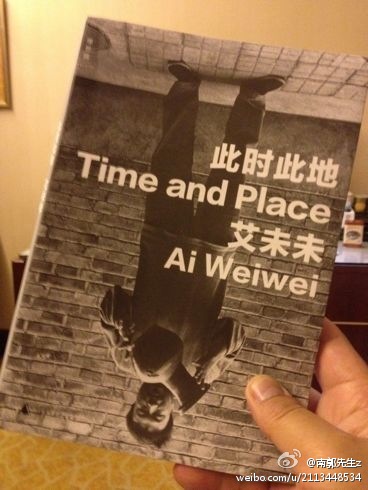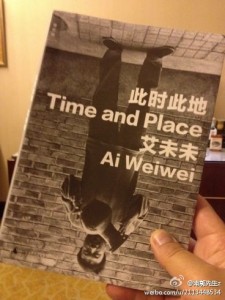Editor’s Note: The Word of the Week comes from China Digital Space’s Grass-Mud Horse Lexicon, a glossary of terms created by Chinese netizens and frequently encountered in online political discussions. These are the words of China’s online “resistance discourse,” used to mock and subvert the official language around censorship and political correctness.
If you are interested in participating in this project by submitting and/or translating terms, please contact the CDT editors at CDT [at] chinadigitaltimes [dot] net.
爱未来 (ài wèilái): Love the future
“Love the future” is a coded reference to Chinese artist and dissident Ai Weiwei (艾未未) that came into use after Ai’s detention in April 2011. Ai’s surname sounds the same as the word “love” in Chinese, and his given name “Weiwei” (未未) can be converted into the word “future” (未来) by adding two small strokes to the second character. After the phrase “love the future” became a cipher for Ai, “future” was for a time a sensitive word on the Chinese Internet (see here).
One of the designers behind the iconic Bird’s Nest Stadium, Ai was prominent in the art world long before he became a thorn in the Chinese government’s side. He started to rankle the authorities in May 2008 when he lead a project to collect the names of children who died in the Sichuan earthquake. Active on Twitter, he commented there in February 2011 about the calls for a “jasmine revolution” in China modeled after Egypt’s. Visits from the police and the destruction of his Shanghai studio in late 2010, combined with the tension in Beijing brought by the Arab Spring, lead Ai to attempt to leave for Hong Kong on April 3. He was detained while boarding his flight and disappeared for 81 days. Once back home and under surveillance, he didn’t stay silent for long.
New Yorker China correspondent Evan Osnos profiled Ai in 2010. Edward Wong of the New York Times wrote an account of Ai’s detention on May 26, 2012.








